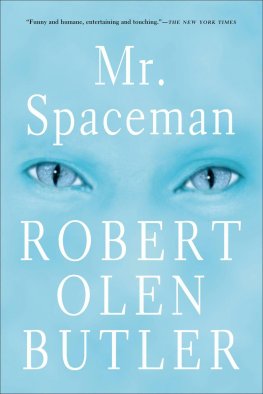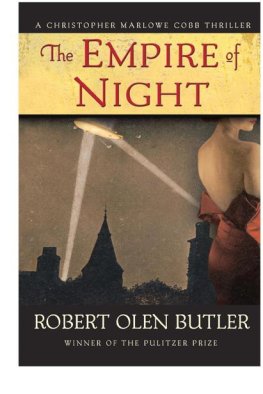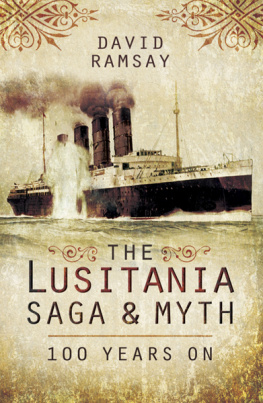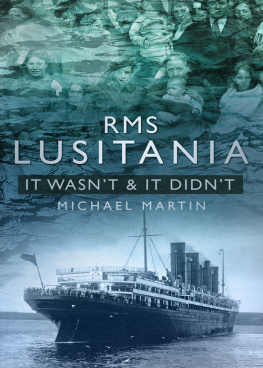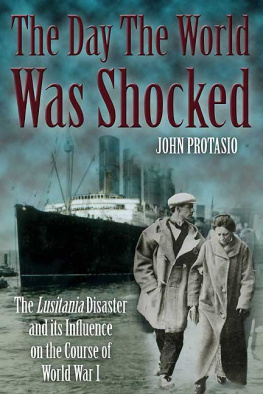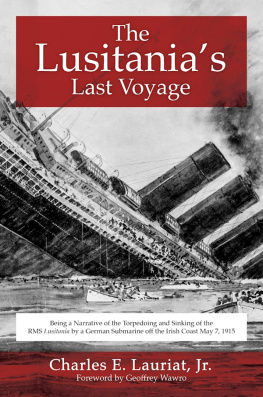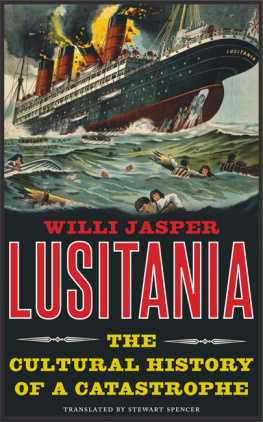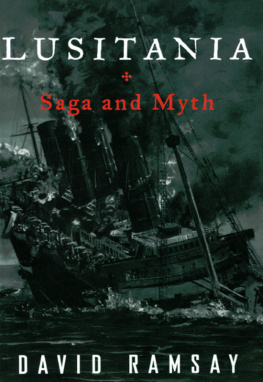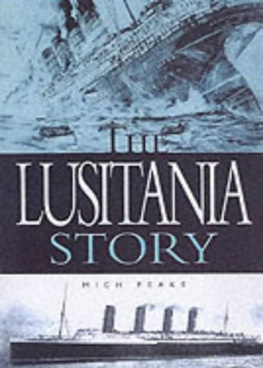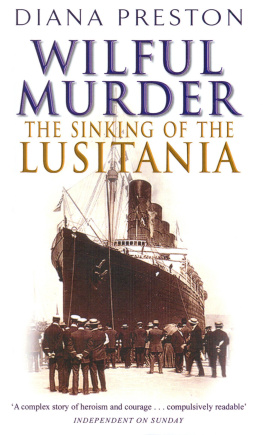Robert Olen Butler
The Star of Istanbul
For Kelly, my wife.
These words are for her, through her.
Thanks to Dr. Wesley Scoles, my physician, my friend, and my go-to Doctor of Mayhem. To Jake Reiss, for the occasional writing space in the Booksmiths back room, for his support of Kit Cobb, and for a certain, splendid personnel decision. And to Lou Boxer, who read every word.
I did not expect to find him until we were on board, this Walter Brauer. I knew where he was booked in first class: en suite on A Deck, with my stateroom just around the corner. In the jostle of the crowd at Pier 54, I was content not even to think about him. If he didnt show, that would be Trasks problem. Id never been late to a war, and here the world was, nine months into the Big One and no one had seen a single Christopher Cobb byline from the action. That was Trasks doing.
No. More precisely, it was my countrys doing, so I guess I wasnt as heated up as I know Im sounding. After my little adventure in Mexico the previous spring, my country had called on me to take some time off and train for the covert work I was happy to be asked to do. But I was also happy to get up on the back of a great greyhound of a steamship and run to the action at last. And Id still get to be a war correspondent, even as I played this other part as well.
So the quay was jammed and the melting pot was aboil and its ingredients were separating. Thickening at the forward gangway were the third-class kersey caps and head scarves and threadbare motley; aft, the flowered straw hats and derbies and the Sears serge suits of second class; and amidships, the veiled bonnets and the lambskin gloves and the bespoke three-piece sack suits of the first-class swells.
I was traveling with this latter group, and even we were being stopped one by one at the bottom of our gangway stairs, where every parcel, every purse, every box and bag was checked for German bombs. The ship security was tight, and as for the tough Hun talk in the morning papers about it being open season in the North Atlantic on any ship flying a British flag, well, the U-boats had never sunk a vessel doing more than fourteen knots nor could they and theyd never dare to sink a passenger ship, especially with Americans on board, for fear it would finally grow Woody Wilson a backbone. I was content to be frisked and stamped and passed along, but it turned out that the strong lavender smell behind me was the pomade slicking down the black, center-parted hair of Walter Brauer, his hat in his hand in calculated deference to the uniformed bull checking us through.
I recognized him from the photos Trask showed me in my last briefing: faintly jowled, densely eyebrowed, wide in the shoulders and short in the legs. The black of his hair was intense no doubt dyed, as he was pushing fifty and with the topping of lavender grease he was the very image, it seemed to me, of a petty confidence man working widowed owners of boardinghouses. But in fact Walter Brauer was a German-American whod some years ago left the U.S. and whod suddenly shown up in Washington on the sly and was known to Trask and his boys as an agent of the German secret service. What wasnt known was what he was up to, his having stayed in America for not quite two weeks before boarding a steamship to rush back across the North Atlantic. And since it was time for the Chicago Post-Express and the U.S. government to jointly send me abroad anyway, the Federales thought I might as well get my feet wet following this guy. Maybe even introduce myself as the newsman I was known to be.
All in good time. I stayed just ahead of him through the whole process, with the purser and with the baggage steward, and then I lingered at the foot of the Grand Staircase. I affected an interest in the two electric elevators in the staircases central well, not trying to enter the just-arrived mahogany car but nodding at the operator and deferring to the handful of women who crowded in. The elevator clanked and ground its way upward and I waited for Brauer, examining the gilded rosettes and medallions on the elevator grillwork as if intending sometime to capture the detail of them in a newspaper story as indeed I figured I might, to warm up my byline with a Running the U-Boat Gauntlet feature story at the other end of our journey.
I saw him in my periphery and I moved away and up the plush, roseate carpet of the staircase. I thought hed taken casual note of me and it was good to have his first impression be of him following me. On the A Deck we passed through the first-class writing room and library, held up by Corinthian columns, filled with chairs and writing tables done in eighteenth-century rectilinear simplicity, and cramped into a horseshoe shape by the massive intrusion of the prowside wall, behind which lurked the number two funnel.
I led us along the starboard leg of the horseshoe and out the forward door and into the electric-lit passageway. I passed what I knew to be Brauers en suite rooms, A23 and A21, and I moved on down the corridor and turned into the transverse passageway. A few steps later, beyond a short, forward-heading corridor from which a stewardess approached with an arm full of towels, I arrived at the door of my own single-room cabin, A12. Still keenly conscious of him, from around the corner, I distantly heard Brauer shutting his door. The stewardess rustled past me and turned into the portside passageway. A rich, vibrantly modulated womans voice down the way greeted her: Ah yes, thank you for these.
Maam, the stewardess said.
The womans voice said, Please put them in the suite. Im bound for the deck.
Her voice lingered in my head for a moment: the voice of an actress, I thought. And then, a little later, my bags unpacked and stowed and my own towel poised before my wet face, I looked at myself in the mirror over the cabin washbasin and I was the one who seemed like an actor. The face before me was no longer mine. I was made up. The water clung to my dense but close-cropped beard, the first beard Id ever had for more than a few weeks. Id worn this one for nearly a year. Ever since Mexico. What made me pause here to consider myself before a mirror, as if in a scene from a dime novel, was that the bearded one was called by my name, Christopher Marlowe Cobb. It was me. And the beardless face beneath, which had always been mine, was now the face of the invented character, from a play that was yet to be written. That face bore a scar on the left cheek: a long, thin scimitar of a scar. For the character, a Schmiss, the bragging scar of a German aristocrat from his university days in a fencing club. This one earned by me, however, on a dangerous afternoon in estado Coahuila, under the watchful eye of Pancho Villa. The beard of Cobb was consciously put on and could easily be taken off. This other mans scar was permanent.
I dried my face, rubbing hard at it, and I put my shirt and tie and sack coat back on, and I went out of my cabin and took the starboard corridor aft, passing Brauers suite, not pausing to listen at the door because of a young couple aflurry with handbags and exclamations of pleasure entering the other en suite stateroom. I edged by them and then turned into the transverse corridor just before the writing room. I pressed on toward the door ahead of me, and my thought of that door made me realize what had, in addition to Brauer, led me out of my cabin: the woman with the actress voice. If she was bound for our deck, this was the door she would have used.
I stepped out onto the A Deck promenade, and it was largely a strolling and sunning deck, with the railings taken up by lifeboats. More completely so in the three years since the Titanic went down: the radial davits had been raised, and stacked beneath each suspended standard lifeboat were an additional three collapsible boats. Even the previously empty railing near the mainmast was blocked by stacks of collapsibles. Indeed, this deck had mostly ship crew moving about. At this point, the passengers seeking a deck instead of a drink likely wanted a railing from which to watch the embarkation.






